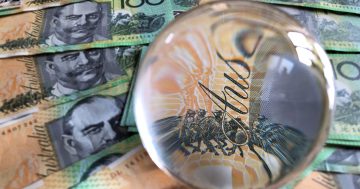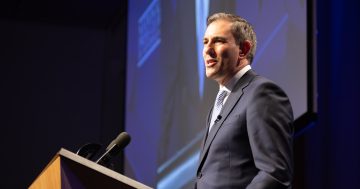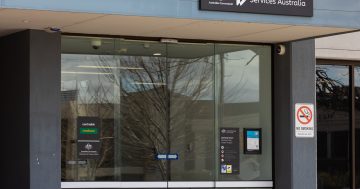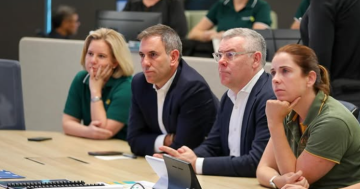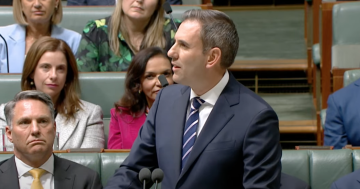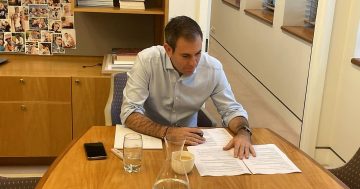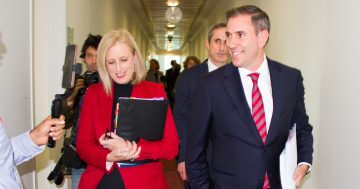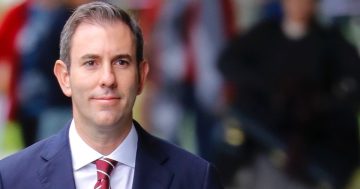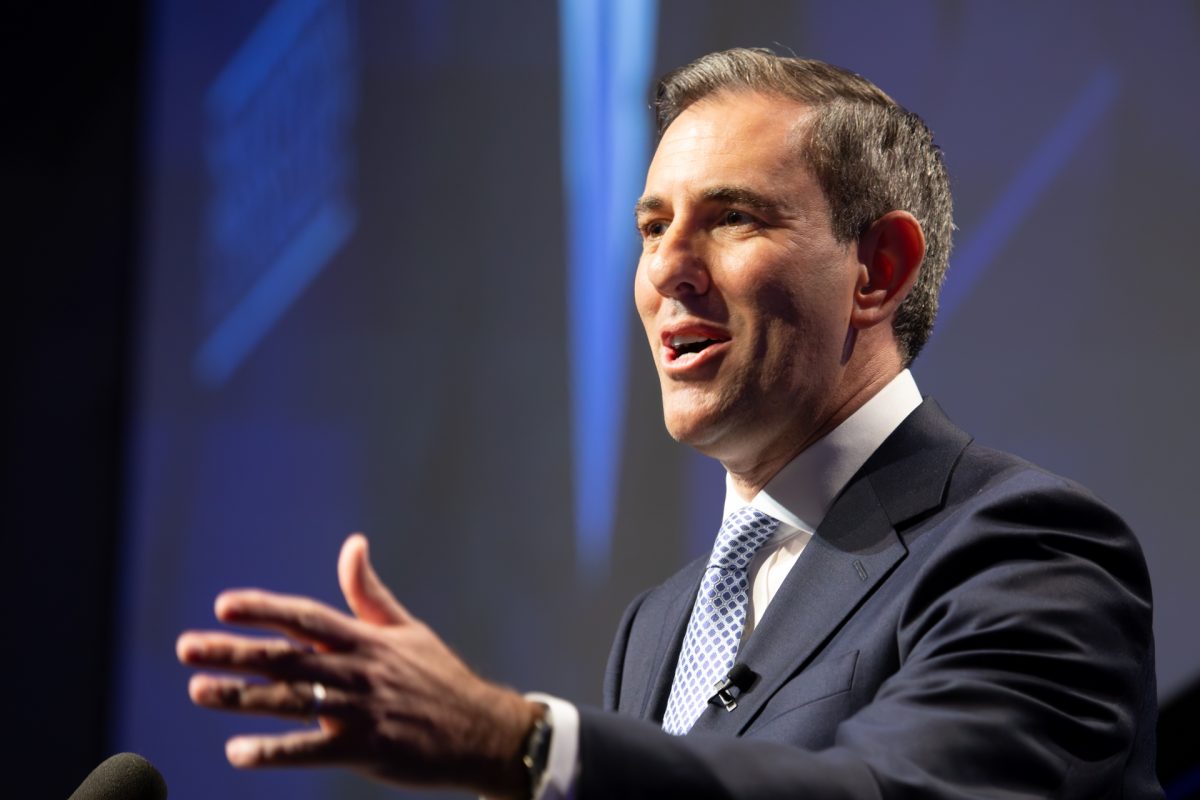
Treasurer Jim Chalmers has defended the government’s management of the economy as the latest forecast shows a slower-than-expected recovery. Photo: Michelle Kroll.
The economic recovery the Federal Government had hoped for seems to be slipping from the Treasurer’s grasp.
The Mid-Year Economic and Fiscal Outlook (MYEFO), unveiled by Treasurer Jim Chalmers and Finance Minister Katy Gallagher on Wednesday (18 December), shows that while the federal budget is on track for a deficit of $26.9 billion this financial year, it will not return to balance for another decade.
This year’s deficit is $1.3 billion lower than the May budget projected, and Australia is unlikely to see a surplus until 2034-35.
Treasury has forecast lower growth over the next year than it had previously expected, thanks to a slow upturn in household and discretionary spending and the persistence of high interest rates.
Labor says it has delivered the “biggest ever budget turnaround” in a parliamentary term due to a combination of limiting real spending growth, identifying savings and banking the majority of revenue upgrades since they came to office.
However, MYEFO also revealed that the government will spend an extra $19 billion on childcare, healthcare and some infrastructure projects.
The ministers have defended the extra spending and insist they are managing the economy responsibly.
“These figures show an improvement in the bottom line for this year since the Budget, and a big improvement to the bottom line since the election,” Senator Gallagher said.
“The deficit for this year is now $1.3 billion smaller in this budget update, and almost half the $47.1 billion deficit we inherited for this year from our predecessors.”
The Treasurer stressed that the government had delivered two surpluses in its first two years and a “much smaller deficit” in its third year.
Despite the “pressures coming at us”, he said, the economy is growing and inflation is moderating.
The Treasurer said real wages are growing, unemployment is low, more than one million new jobs have been created, and the government is rolling out tax cuts and cost‑of‑living help to people doing it tough.
“This is a responsible set of books,” Dr Chalmers said.
“We have maintained a primary focus on inflation and the cost of living without ignoring our broader responsibilities to people when it comes to Medicare and medicines and pensions and the like.”
Global uncertainty and other pressures have driven some “slippage” to the bottom line since the May Budget. The Treasurer says the slippage in subsequent years is largely due to “urgent, unavoidable or automatic” increases in spending in areas like pensions, Medicare and medicines.
“This mid‑year update includes $8.8 billion in unavoidable spending, taking the total since coming to government to $47.6 billion,” he said.
“We’ve also had to account for $16.3 billion in payment variations to ensure veterans receive their entitlements, to index pensions, to increase support to families, to support disaster recovery and support increased demand for health services.”
The Opposition immediately jumped on the figures as an indication the government has lost control of the budget.
Shadow Treasurer Angus Taylor described the current Labor government as one of the biggest spending governments in normal times and said every Australian now has to “pay the price” for it.
“This is not free money,” he said.
“This is the biggest-spending government we have seen outside of wartime or crisis.
“And there is absolutely no pathway in this update to a restoration of Australians’ standard of living.”
The latest figures ensure cost-of-living pressures will be front and centre of the election campaign once it is called next year, with each side blaming the other for the current state of the economy.
The economic update also has provision for $5.5 billion for “decisions taken, but not yet announced” – which has been described (by some) as an election war chest for the incumbent government to help the Labor campaign with a string of costed promises throughout the campaign.












